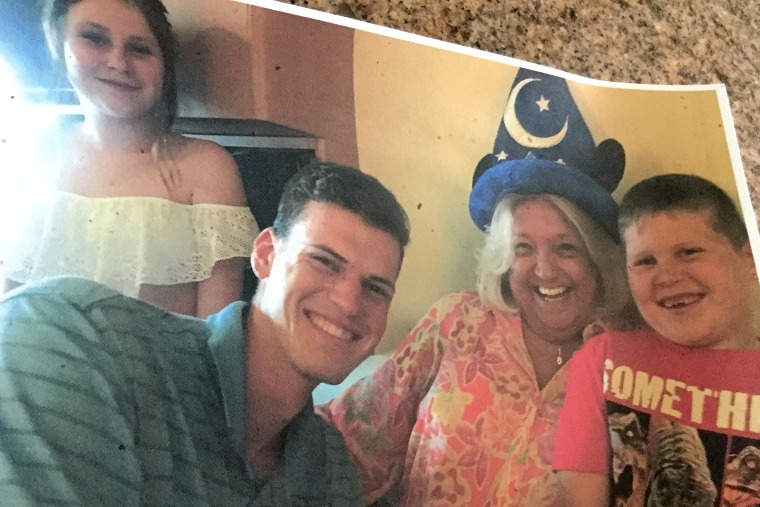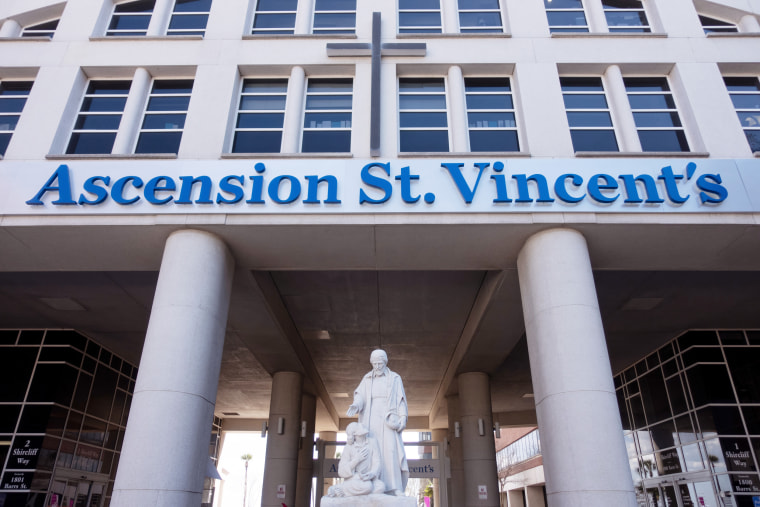An orthopedic surgeon in Florida caused “hundreds of devastating injuries” while his hospital ignored complaints from patients for years after he started displaying signs of a progressive neurological disorder, according to court documents.
Between 2016 and 2020, patients noticed Dr. Richard David Heekin slurring his words and having “difficulty with balance, inability to concentrate, angry outbursts, erratic behavior, gait disturbances and impaired judgment and mood,” according to court documents.
Among his alleged errors made during surgeries were bone fractures, ruptured tendons and severed nerves.
The resulting complications were significant, with many patients requiring revision surgeries, and at least one complication cost a patient her life, according to the civil complaints.
The lawsuits name Heekin, his clinic and Ascension St. Vincent’s Riverside Hospital in Jacksonville, Florida, as defendants. J. Brent Allen, the attorney for St. Vincent’s Riverside, declined to comment on the allegations, while Jep Barbour, an attorney for Heekin and Heekin Clinic, did not immediately respond to phone calls and emails from NBC News. Attempts to reach Heekin were unsuccessful.
Heekin was primarily performing knee and hip replacements — operations that generally don’t come with a high rate of major complications for patients, a 2020 study published in the journal BMC Musculoskeletal Disorders found.
So far, 350 lawsuits have been filed, with at least 100 more expected by the end of the year, Daniel Harwin, who represents the alleged victims, told NBC News in an exclusive interview.
“They had a reasonable expectation that their lives were going to be improved,” Harwin said of Heekin’s patients.
One of the most extreme complications cited in the court documents occurred in Lucinda Bonk, 70, who died in September 2018 after a hip replacement that lasted longer than expected because Heekin allegedly fractured her femur, or thigh bone, during the surgery.
After Heekin attempted to repair the severe fracture, Bonk’s vital signs started to diminish, Harwin said; her death certificate, which was viewed by NBC News, lists complications of a femur fracture as her cause of death.

When Bonk first met Heekin, he had not raised any red flags, said Anthony Bonk, her husband of 42 years. Speaking to NBC News in his first public remarks about his wife’s case, Anthony Bonk said that Heekin didn’t have the friendliest bedside manner, but he expressed confidence that he could fix Bonk’s hip.
The morning of her surgery, Bonk felt optimistic, Anthony Bonk said.
“She just wanted me to hold her hand during the surgery and after the surgery,” he said. “Needless to say, I didn’t get that opportunity.”
“She just wanted me to hold her hand during the surgery and after the surgery. Needless to say, I didn’t get that opportunity.”
Anthony Bonk, Husband of lucinda bonk
Instead, Anthony Bonk said he watched as staff frantically tried to resuscitate his wife after her operation.
“It still hits me today,” he added, his voice breaking. “You don’t ever get over it.”
Among the other alleged victims were patients whose surgery left them with a leg that was shorter than the other because Heekin had allegedly selected the wrong size femoral component needed for hip replacement. Other patients had such severe nerve damage that it resulted in permanent “drop foot,” the documents say, referring to difficulty lifting the front part of the foot off the ground.
An uncommon brain disorder
According to the court documents, Heekin had progressive supranuclear palsy, which the Mayo Clinic describes as an uncommon brain disorder that causes serious problems with walking, balance and eye movements, and later, with swallowing. It worsens over time.
There were no details about when or if hospital officials had become aware that Heekin might have the condition.
Several physicians and nurses voiced concern about Heekin’s ability to practice, the court documents say. They expressed their concerns to those in management positions at St. Vincent’s Riverside hospital, yet the hospital still “forced at least one nurse who asked not to be in the room with him to continue to perform surgery with Heekin when she knew it was a risk to patient safety,” according to court records.
Through its attorney, Ascension declined to comment.
Heekin had performed thousands of successful surgeries prior to 2016, the court documents say. He ended his surgical career in 2020, when he retired of his own volition, Harwin said.
The first trial in the case, a consolidated bellwether trial for six plaintiffs, is scheduled for August 2023, Harwin said.
Anthony Bonk said he hopes his wife’s death will force medical institutions to review their practices.
“You trust them. That’s what they’re in business for,” he said.

